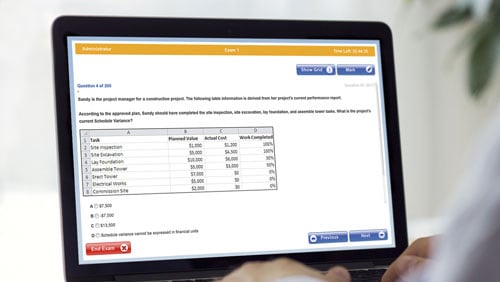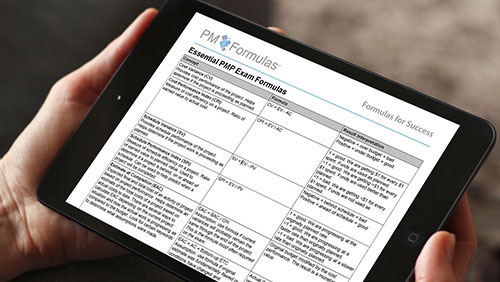The PMP® Exam and PMBOK® Guide are Changing
This article is a brief overview of the release date for A Guide to the Project Management Body of Knowledge (PMBOK® Guide) Sixth Edition and how this affects the PMP® Exam.
In addition to giving you all the dates of the PMBOK® Guide 6 release, we also discuss when and how The PMP Exam is changing, and we close by giving you our recommendation on which version you should use for your PMP exam prep studies.
This article will be updated over time as Project Management Institute (PMI)® releases more specific release dates.
- 1. When will PMBOK® Guide Sixth Edition be released?
- 2. When will The PMP® Exam change in 2018?
- 3. Are You Updating The PM PrepCast and The PM Exam Simulator?
- 4. What Changes are Coming to The PMP® Exam in 2018?
- 5. What are the major PMBOK® Guide changes?
- 6. Which Version of the GUIDE Should I use to Study?
When will PMBOK® Guide Sixth Edition be released?
It was released on 06 September 2017.
Please click here to purchase a paper copy, or click here to download a PDF version (for PMI members only).
When will The PMP® Exam change in 2018?
It changes on 26 March 2018.
The PMP® Exam uses on the PMBOK® Guide as its primary reference. The exam changeover from Fifth to Sixth Edition is scheduled as follows:
-
If your exam is scheduled before 26 March 2018, then your exam will reference the PMBOK® Guide – Fifth Edition.
-
If your exam is scheduled on or after 26 March 2018, then your exam will reference the PMBOK® Guide – Sixth Edition.
Please note that there is not grace period and the cut-off date is absolute. You cannot request to be tested based on the Fifth Edition on/after 26 March 2018.
Are You Updating The PM PrepCast and The PM Exam Simulator?
Yes we are. The following articles have the details:
What Changes are Coming to The PMP® Exam in 2018?
The following interview with Simona Fallavollita (LinkedIn Profile) has the answers. It was recorded at the magnificient Project Management Institute (PMI)® Global Conference 2017 in Chicago, Illinois. We discuss the how, what, why and when of the changes that are coming to the PMP exam.

This interview was originally published on The Project Management Podcast.
What are the major PMBOK® Guide changes?
1) There will be 49 processes from 47.
2) Three new processes will be added and one process will be deleted.
New processes:
- "Manage Project Knowledge"
- "Control Resources"
- "Implement Risk Responses"
Deleted process:
- Close Procurements process has been removed. Its functionality has been consolidated into the "Close Project or Phase” Process
3) Two Knowledge Areas will be renamed:
From Project Human Resource Management to "Project Resource Management"
From Project Time Management to "Project Schedule Management"
4) Some Processes will be renamed:
- From Perform Quality Assurance to "Manage Quality"
- From Plan Human Resource Management to "Plan Resource Management"
- From Acquire Project Team to "Acquire Resources"
- From Control Communications to "Monitor Communications"
- From Control Risks to “Monitor Risks“
- From Plan Stakeholder Management to "Plan Stakeholder Engagement"
- From Control Stakeholder Engagement to "Monitor Stakeholder Engagement"
5) Chapters Re-alignment
There will be chapters re-alignment in Front End (Chapters 1 to 3). The information in Chapter 1 to 3 will be combined into 2 chapters and a new Chapter 3 will be devoted to “The Role of the Project Manager” where many aspects of the Project Manager’s role will be specifically mapped to the PMI Talent Triangle.
6) There will be Process Tailoring which means analyzing the project to determine how much emphasis to put on each process (based on the scope & size of the project).
7) There will be various notations throughout the new PMBOK® Guide differentiating between processes which are “Ongoing” (continuously executing) vs. "Non-ongoing processes.” This concept will be emphasized for the first time in new PMBOK® Guide Sixth Edition.
8) The Project Scope vs Product Scope concept will also be emphasized for the first time in new PMBOK® Guide 6th Edition.
9) The Earned Value tool kit supported by the PMBOK® Guide will now include “Earned Schedule Management".
10) There will be distinction between "Communication" (as in communicating between two people) and "Communications" (artifacts, such as published emails).
11) The new strategy, “Escalate Responses” provides for a PM escalating a risk to the appropriate party so that the risk is no longer his/her responsibility. Once escalated, the PM will now have the option of either:
A) Removing the risk from the project’s risk register if desired, or
B) Keeping it in the risk register, but classifying it as “Escalated/Assigned To.”
12) The new Lessons Learned Register is now part of the set of ITTOs. Project Managers will now be encouraged to update on a frequent basis (not just at the end of the project). Updates can be done at any time throughout the project, especially at the end of project phases (similar to the “Retrospective” in Agile).
13) The PMBOK® Guide itself is taking on more of a voluntary instead of mandatory tone in some areas. For instance, for Requirements Collection, they might now say something to the effect that, “Here is a list of possible choices of tools. Choose any of these that best might fit your current project.”
14) ITTO Bundling
There will be simplification of Inputs and Outputs in ITTO table. Tools & Techniques will be grouped under common headings.
15) New Appendix Information
- Summary of Key Concepts
- Summary of Tailoring Considerations
- Summary of Tools & Techniques
- Adaptive & Iterative Approaches
Which Version of the GUIDE Should I use to Study?
That's easy and only depends on when you are scheduled to take your PMP exam:
25-March-2018
You must study using PMBOK® Guide Fifth Edition.
26-March-2018
You must study using PMBOK® Guide Sixth Edition
See? I told you it was easy


